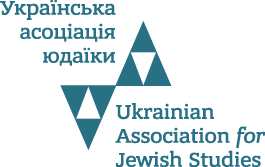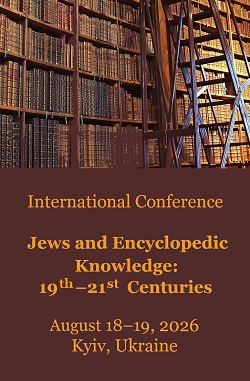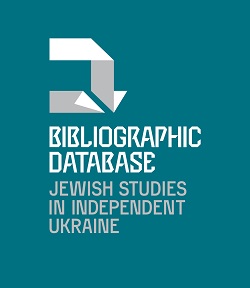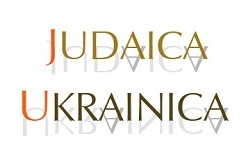2020-01-06
International Conference
“Revealing of Secrets”:
Hasidism and Haskalah in the Ukrainian Lands
August 31 – September 1, 2021, Lviv
Organizer: Ukrainian Association for Jewish Studies
The modernization of the Jewish communities of Eastern Europe is associated with the interaction of two powerful movements – Hasidism and the Jewish Enlightenment (Haskalah). They formed the intellectual landscape of Ukrainian Jewry from the second half of the 18th century until the end of the 19th century.
The conference is dedicated to the development of Eastern European Jewry at the border of traditional and modern worlds and to the special place of Ukrainian Jewry in the dialogue between them.
In the second half of the eighteenth century, Podilia, Halychyna (Galicia), and Volyn became the homeland and center of development of the Hasidic movement. At about the same time, the foundations of early Haskalah were laid in the same terrain. The names of Menachem Mendel Lefin of Sataniv, Israel of Zamosc, Solomon Dubno, Pinchas Ha-Levi Horowitz, and others were closely linked to Ukraine. Later, in the first half of the nineteenth century, Western Ukraine became the meeting place for Hasidism and a new stage of Jewish Enlightenment – the so-called “Galician Haskalah.”
In the 20th century, the interaction between Hasidism and Haskalah was largely seen as a confrontation between tradition and modernity. However, studies of the last decades (by David Assaf, Jonatan Meir, David Ruderman, etc.) show that this interaction was actually more like a complex and multifaceted process of mutual self-determination. This process had a profound effect on the further development of both groups, as well as on European Jewry in general – including such important issues such as the religious and social aspects of modern Judaism, the image of Eastern Europe in the Jewish world, the development of Hebrew and Yiddish literature, Zionism, formation of Wissenschaft des Judentums and so forth.
Ukraine played a special role in the history of both Hasidism and Haskalah. However, study of these movements in modern Ukraine – the territory where the interaction between them took place – is still at the stage of formation. We hope that the discussion initiated at the conference will encourage further development of relevant research.
Main topics:
-
Hasidism and Jewish Enlightenment: confrontation or dialogue?
-
Hasidim – Litvaks – Maskilim: encounters, conflicts, scandals;
-
Hasidic dynasties of Ukraine: historical, regional, sociological, and cultural studies;
-
Geography of Hasidism and Haskalah;
-
Galician Haskalah as a cultural and historical phenomenon;
-
Hasidim through the eyes of Maskilim: anti-Hasidic satire by Joseph Perl, Itzhak Erter, and others;
-
Maskilim through the eyes of Hasidim: controversy with “philosophers” in Hasidic literature;
-
The first steps into European science: natural sciences, philosophy, history, philology, geography, and medicine in the Jewish literature of Eastern Europe of the 18th and 19th centuries;
-
The baal-shem tradition: Jewish folk magic and folk medicine between the Kabbalah and European knowledge;
-
Enlightenment and Hasidism in the nineteenth-century Jewish press.
A round table on “untranslatability” in Hasidic and Maskilic literature will take place at the conference. The problem of translation is a very real one for all cultural phenomena of the borderland. The borders between Jewish and European cultures, the Jewish traditional and modern worlds, and the intersection of Hebrew, Yiddish, Ukrainian, Polish, Russian, and German sprachraums raise a complex of questions – what and how can be translated, and what, on the contrary, should not be translated. The problem of ‘untranslatability’ is fundamental to most of the Maskilic texts. In their attempts to find correspondences with the basic concepts of European thought in the rabbinic literature of the 18th and 19th centuries, Jewish enlighteners radically expanded the boundaries of modern Hebrew. This makes understanding (and even more so translating) their works extremely difficult. On the other hand, in recent years, the first attempts have been made to translate Hasidic texts into Ukrainian. However, there is still no consensus on the translation of neither Hasidic terminology nor of the basic terms used in Jewish mystical texts. Therefore, in the field of Hasidic studies, the problem of translation is extremely acute.
The perspectives for the studies of Hasidism and Haskalah in Ukraine and Eastern Europe will also be discussed at the conference.
Furthermore, a young researchers’ seminar will be held as a part of the conference. Students of MA and PhD programs are invited to participate. Both completed works and ongoing research projects can be presented and discussed during this seminar.
Keynote speakers:
Prof. Marcin Wodziński (University of Wroclaw, Poland)
Prof. Shmuel Feiner (Bar-Ilan University, Israel)
The conference language is English.
Conference participants will be able to submit their presentations as articles to the peer-reviewed journal Judaica Ukrainica for publication in 2021.
Deadline for submissions: April 1, 2020.
Notification of acceptance to be mailed by April 15, 2020.
The organizers will cover accommodation and meals for participants. Some speakers will be eligible for travel funding. Those who will require reimbursement of their tickets are asked to note this in their application.
The registration form can be found at http://bit.ly/UAJS_conference_2020_en.
For other questions, please contact the Organizing Committee at uajs.conference@gmail.com.





